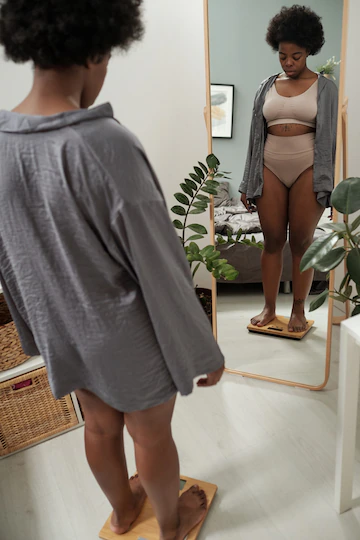Body Dysmorphic Disorder (BDD) is a debilitating mental health condition that affects individuals worldwide, including those in South Africa. BDD is characterized by an obsessive preoccupation with perceived flaws in one’s appearance, leading to significant distress and impairment in daily functioning. It is essential to raise awareness about this disorder and implement effective strategies to address and support individuals living with BDD in South Africa.
Body Dysmorphic Disorder often manifests as an intense and irrational concern about specific body parts or overall appearance, even when there are no significant abnormalities present. Individuals with BDD may spend excessive amounts of time checking, grooming, or seeking reassurance about their appearance. They may also engage in behaviors such as excessive exercise, skin picking, or seeking unnecessary cosmetic procedures in an attempt to alleviate their distress.
The impact of BDD on individuals’ mental health cannot be overstated. The constant obsession and dissatisfaction with their appearance can lead to depression, anxiety, social isolation, and even suicidal thoughts. Unfortunately, BDD often goes undiagnosed or misdiagnosed, as individuals may be too ashamed or embarrassed to seek help or may not be aware that their distressing thoughts and behaviors are related to a mental health condition.
Addressing BDD in South Africa requires a multi-faceted approach involving various stakeholders, including healthcare professionals, educational institutions, and the broader community. Here are some strategies to consider:
- Increasing awareness: Education and awareness campaigns can help reduce the stigma surrounding BDD and promote early identification and intervention. By raising public awareness through media, workshops, and educational programs, more individuals can recognize the signs and symptoms of BDD and seek appropriate help.
- Training healthcare professionals: It is crucial to provide comprehensive training to healthcare professionals, including general practitioners, psychologists, psychiatrists, and dermatologists, to improve their ability to identify and treat BDD effectively. Professional development programs and workshops can help healthcare providers gain a better understanding of BDD, its impact on mental health, and evidence-based treatment approaches.
- Enhancing access to mental health services: South Africa faces challenges in terms of access to mental health services, particularly in rural areas. It is important to invest in mental health infrastructure, including increasing the number of specialized treatment centers, improving availability of therapists and psychologists, and expanding telehealth services. Additionally, incorporating mental health services into primary healthcare settings can help individuals access support more easily.
- Culturally sensitive interventions: Recognizing the cultural context is vital in addressing BDD in South Africa. Cultural beliefs and societal pressures regarding beauty and appearance can influence the development and maintenance of BDD symptoms. Interventions should be culturally sensitive, taking into account the diverse population and promoting body positivity and self-acceptance.
- Support groups and peer networks: Establishing support groups and online communities for individuals living with BDD can provide a sense of belonging, support, and understanding. Connecting individuals with shared experiences can help reduce feelings of isolation and provide a platform for sharing coping strategies and resources.
- Collaboration and research: Collaboration among researchers, mental health professionals, and advocacy groups is crucial to advance our understanding of BDD in the South African context. Conducting research studies, collecting data, and evaluating the effectiveness of interventions specific to the local population can guide future treatment and prevention efforts.
Addressing Body Dysmorphic Disorder in South Africa requires a comprehensive and coordinated effort from various sectors. By increasing awareness, improving access to mental health services, and promoting culturally sensitive interventions, we can support individuals living with BDD and create a society that values and celebrates diverse body types and appearances. Let us work together to ensure that those struggling with BDD receive the understanding, empathy, and assistance they need to live fulfilling and mentally healthy lives.










